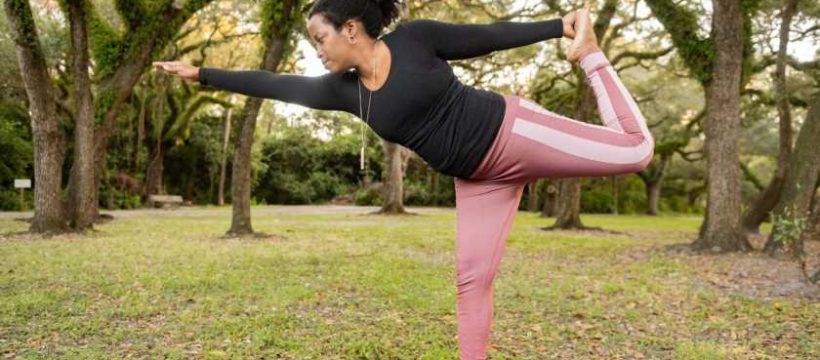Around 20% of people are ‘highly sensitive’ – here’s how that can impact your workouts, according to a HSP.
Do you find the world overwhelming? Are you hyper-responsive to touch, noise or your environment? Do you find yourself deeply moved by art, culture or nature? You could be a ‘highly sensitive person’ (HSP) – a personality type identified by Dr Elaine Aron in her book The Highly Sensitive Person in 1996.
For an HSP, many experiences feel incredibly intense. And where is more of a sensory overload than a gym? The spaces are loaded with a lot of people and a load of kit, with noise hitting your ears from every direction. Running is no better.There is always someone or something to look at, changing weather that bashes your face, and a rising heart rate that can cause distractions.
You may also like
It’s not just you being irritable – here’s the biological reason you can’t stand the sound of chewing or tapping
Ash Alves is a HSP and founder of the wellness organisation Warrior Reminder. She says that exercise can be difficult, given that she “gets so aroused by what’s happening around me that I find it difficult to concentrate on what I’m doing.
“HSPs are hyper-aware of the noise, the lighting, the facial expressions on people next to us. We tend to tune into things that are happening around us and it can make it very difficult for us to focus on our own sessions.
“On top of that, we pick up on the nuances and tiny details in things. When running, we’re noticing everything that is changing, both internally and externally.”
It’s not just because they’re easily aroused, stimulated and distracted that makes exercise difficult for HSPs. “The reason we are so sensitive to these things is because HSPs have sensitive central nervous systems,” says Alves.

Given that exercise taps into the nervous system, it can also be internally stimulating – a racing heart during HIIT can feel intense to the best of us, but if you are incredibly aware of even small changes it can feel too intense. “I’m able to manage that level of arousal, but all HSPs are different. And it’s not something I can do for a long period of time – say if I run without headphones, I can hear everything inside of me to the point where it distracts me.”
Is exercise good for highly sensitive people?
Everything we know about exercise is that it’s set to help with mental health. That includes HSP. A paper from the journal Nature found that “contemplative practices” including mindful walking or time running outdoors improves the wellbeing of HSP – perhaps because it allows them time to process their thoughts.
“Highly sensitive people live in a rich and complex world. It means that we have a tendency towards rumination and thinking about the past and reflecting on things that have happened. I think exercise helps us to get out of our heads and allows us to actually be present in our bodies,” says Alves.
“I also think that the general benefits of exercising translate very well onto HSP. When you look after yourself and feel better mentally, physically and emotionally, it can help when you are feeling overstimulated. You know that you’ve taken time to look after yourself and are able to respond from that place of wellness and fullness as opposed to feeling more drained because you haven’t taken care of your body.”
You may also like
Weight lifting and the nervous system: how strength training improves our brain pathways
The best type of exercise for HSP
The type of movement that you choose can be crucial to whether it helps or hinders your sensitivity. That doesn’t mean there’s a blanket approach – every HSP will respond differently to movement. For example, Alves says that she has to listen to music when she runs to avoid physical and environmental distraction.
But for Lauren Geall, Stylist’s digital writer, running without headphones is best. “As someone with a rich and complex inner thought process, I don’t need the extra distraction as I’m often occupied by my thoughts when out for a jog,” she says.
Alves suggests the following as a place to start with movement if you are a HSP who is struggling with the overstimulation of movement.
Try to move in solitude
This might mean at home, or only going to the gym during quiet times, rather than peak hours. It’s a simple way to limit distractions.
Get outside
That deep connection with nature can be a gift – make use of it. “Running in a peaceful environment can be a really important way for me to come to terms with my senses and relax,” says Alves.
Focus on low-impact moves
“I think slow-paced exercise, like yoga, is important for connecting with the body. It means you’re not being pulled into the external environment and decompress by releasing any tension through stretching,” says Alves.
For tips on moving well and healthy recipes to support your fitness regime, check out the Strong Women Training Club.
Images: Getty
Source: Read Full Article
